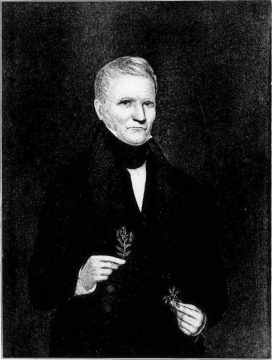John Charpentier in Undark:
 MIRACLE CURES, detox cleanses, and vaccine denial may seem to be the products of Hollywood and the social media age, but the truth is that medical pseudoscience has been a cultural touchstone in the U.S. since nearly its founding. At the dawn of the 19th century, when medical journals were still written almost entirely in Latin and only a handful of medical schools existed in the country, the populist fervor that animated the Revolutionary War came to the clinic. And while there was no shortage of cranks peddling phony medicine on a raft of dubious conspiracy theories in the early 1800s, none was more successful and celebrated than Samuel Thomson.
MIRACLE CURES, detox cleanses, and vaccine denial may seem to be the products of Hollywood and the social media age, but the truth is that medical pseudoscience has been a cultural touchstone in the U.S. since nearly its founding. At the dawn of the 19th century, when medical journals were still written almost entirely in Latin and only a handful of medical schools existed in the country, the populist fervor that animated the Revolutionary War came to the clinic. And while there was no shortage of cranks peddling phony medicine on a raft of dubious conspiracy theories in the early 1800s, none was more successful and celebrated than Samuel Thomson.
Portraying himself as an illiterate pig farmer (he was neither), Thomson barnstormed the Northeast telling rapt audiences things they wanted to hear: that “natural” remedies were superior to toxic “chemical” drugs; that all disease had a single cause, despite its many manifestations; that intuition and divine providence had guided him to botanical panaceas; that corrupt medical elites, blinded by class condescension and education, were persecuting him, a humble, ordinary man, because of the threat his ideas and discoveries posed to their profits. For decades, Thomson peddled his dubious system of alternative medicine to Americans by playing to their cultural, political, and religious identities. Two centuries later, the era of Thomsonian medicine isn’t just a historical curiosity; it continues to provide a playbook for grifters and dissembling politicians peddling pseudoscientific solutions to everything from cancer to Covid-19.
More here.
